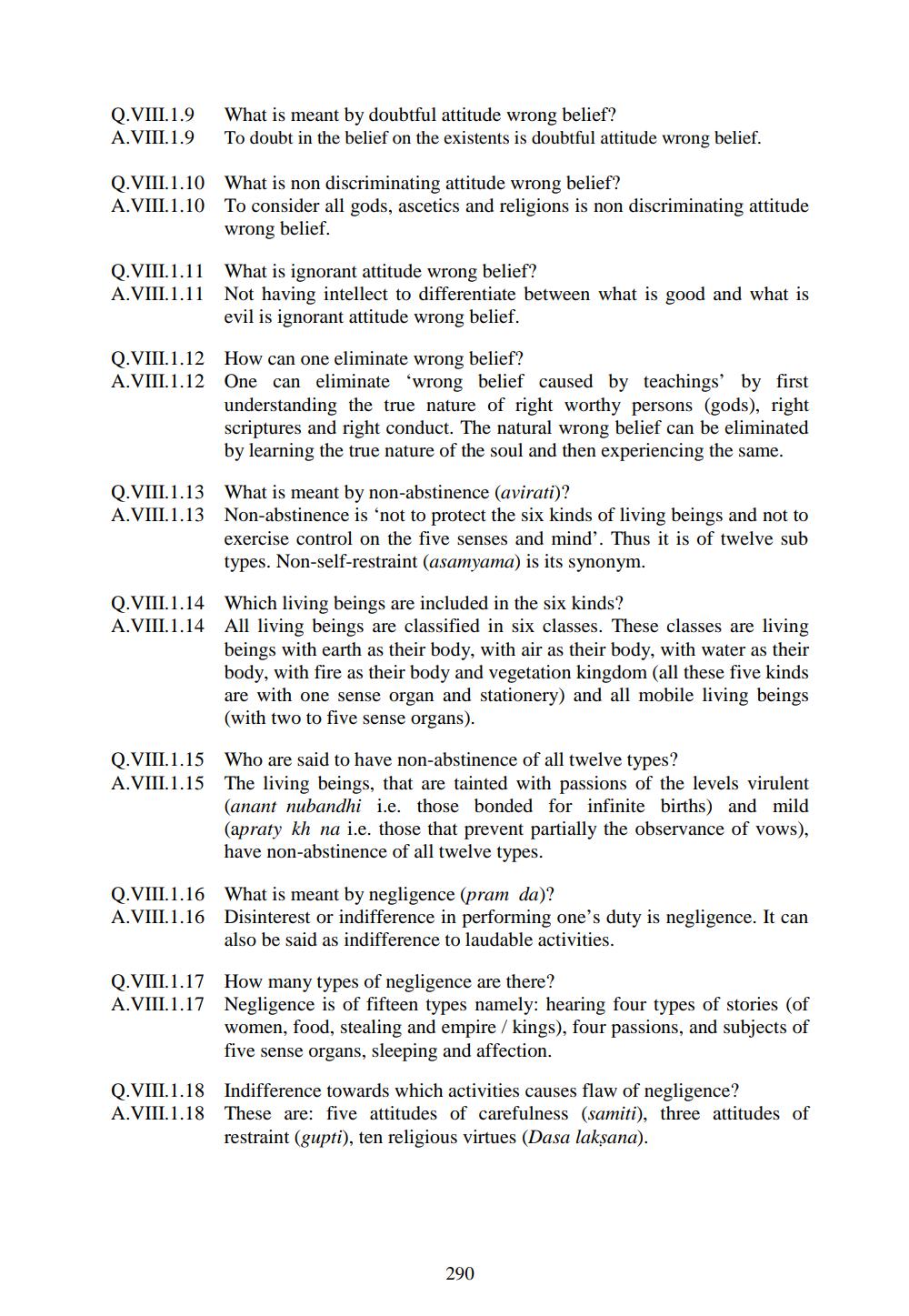________________
Q.VIII.1.9 A.VIII.1.9
What is meant by doubtful attitude wrong belief? To doubt in the belief on the existents is doubtful attitude wrong belief.
Q.VIII.1.10 What is non discriminating attitude wrong belief? A. VIII.1.10 To consider all gods, ascetics and religions is non discriminating attitude
wrong belief.
Q.VIII.1.11 What is ignorant attitude wrong belief? A.VIII.1.11 Not having intellect to differentiate between what is good and what is
evil is ignorant attitude wrong belief.
Q.VIII.1.12 How can one eliminate wrong belief? A.VIII.1.12 One can eliminate 'wrong belief caused by teachings' by first
understanding the true nature of right worthy persons (gods), right scriptures and right conduct. The natural wrong belief can be eliminated by learning the true nature of the soul and then experiencing the same.
Q.VIII.1.13 What is meant by non-abstinence (avirati)? A. VIII.1.13 Non-abstinence is 'not to protect the six kinds of living beings and not to
exercise control on the five senses and mind'. Thus it is of twelve sub types. Non-self-restraint (asamyama) is its synonym.
Q. VIII.1.14 A. VIII.1.14
Which living beings are included in the six kinds? All living beings are classified in six classes. These classes are living beings with earth as their body, with air as their body, with water as their body, with fire as their body and vegetation kingdom (all these five kinds are with one sense organ and stationery) and all mobile living beings (with two to five sense organs).
Q. VIII.1.15 A. VIII.1.15
Who are said to have non-abstinence of all twelve types? The living beings, that are tainted with passions of the levels virulent (anant nubandhi i.e. those bonded for infinite births) and mild (apraty kh na i.e. those that prevent partially the observance of vows), have non-abstinence of all twelve types.
Q.VIII.1.16 A. VIII.1.16
What is meant by negligence (pram da)? Disinterest or indifference in performing one's duty is negligence. It can also be said as indifference to laudable activities.
Q. VIII.1.17 How many types of negligence are there? A. VIII.1.17 Negligence is of fifteen types namely: hearing four types of stories (of
women, food, stealing and empire / kings), four passions, and subjects of five sense organs, sleeping and affection.
Q.VIII.1.18 A. VIII.1.18
Indifference towards which activities causes flaw of negligence? These are: five attitudes of carefulness (samiti), three attitudes of restraint (gupti), ten religious virtues (Dasa laksana).
290




